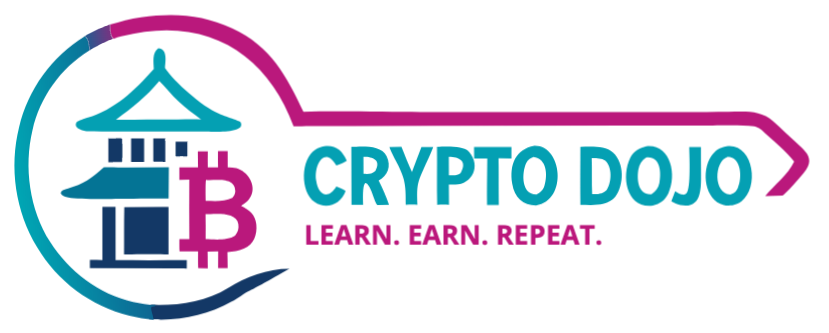Key Takeaways
- Tokenized real estate is transforming property investment by making it more accessible, transparent, and efficient through blockchain technology.
- Leading crypto platforms act as gateways for both newcomers and experienced investors, providing access to global real estate markets with reduced barriers and greater investment flexibility.
- Tokenization unlocks global property access. Blockchain-powered platforms enable you to purchase fractional shares of real estate, opening up prime assets across international markets that were once limited to high-net-worth individuals.
- Fractional ownership removes traditional entry barriers. Many top platforms let users start investing with small amounts of capital, allowing everyday investors to participate in real estate without needing to purchase entire properties.
- Enhanced security and transparency are built in. Tokenized real estate platforms leverage smart contracts and immutable ledgers to ensure transactions are secure, transparent, and easily auditable, fostering trust in each exchange.
- Improved liquidity options are now possible. By using tokens that represent property shares, investors can more easily buy, sell, or trade holdings on secondary markets, overcoming the traditional illiquidity of real estate assets.
- Regulatory compliance and reputation matter. Leading projects emphasize strong regulatory frameworks to protect investors and ensure longevity, making the choice of a reputable platform essential for safety and peace of mind.
- Portfolio diversification has never been simpler. With digital assets, investors can easily spread funds across multiple properties, locations, and asset types, often within a few clicks and with minimal paperwork.
Equipped with these key insights, you are prepared to evaluate how the best tokenized real estate platforms are democratizing property investing and what factors you should prioritize to participate securely and confidently in this rapidly evolving sector.
Introduction
Traditionally, owning a stake in high-value real estate in major cities like New York, London, or Tokyo required significant capital and complex transactions. Today, however, tokenized real estate platforms are reinventing the property market, allowing investors worldwide to participate just as simply as buying any other digital asset.
This crypto-powered innovation enables the purchase of fractional shares in sought-after properties, accelerating diversification and delivering transparent, secure transactions backed by blockchain technology. Whether you’re a beginner exploring your first real estate investment or an experienced investor seeking more flexibility with lower entry costs, these platforms offer participation opportunities that were previously out of reach for most.
As the digital property landscape expands, understanding which platforms are leading the movement (and how they empower secure, accessible investing) becomes crucial for building your portfolio with confidence.
Stay Sharp. Stay Ahead.
Join our Telegram Group for exclusive content, real insights,
engage with us and other members and get access to
insider updates, early news and top insights.
 Join the Group
Join the Group
Understanding Tokenized Real Estate
The Blockchain-Property Connection
At the core of tokenized real estate lies blockchain technology, which serves to convert physical assets into secure digital tokens. Through smart contracts, each property is divided into numerous tokens, and each token signifies a fractional ownership stake in the underlying property. This process allows everyday investors to gain exposure to real estate without the burdens of sole ownership.
The journey begins with the legal assessment and structuring of the physical asset. Afterward, a digital representation (token) is created via a tokenization platform, which mints a fixed number of tokens reflecting ownership shares. These tokens are then listed on dedicated digital marketplaces, where investors can browse, evaluate, and purchase their chosen portions.
Tokenized real estate bridges the worlds of traditional property and blockchain technology, turning tangible assets into flexible, tradeable digital units. This transformation fundamentally changes how investors gain access to global property markets. Doors are opening that were once limited by geography, cost, or legal hurdles.
Benefits of Tokenized Property Investment
The advent of tokenized real estate introduces several transformative benefits that distinguish it from traditional investment approaches. Chief among these is broad accessibility. Investors can enter the market with relatively modest amounts, sometimes as little as $50, instead of being restricted to those with large sums of capital. This democratized approach makes real estate investing feasible for a much wider audience.
Enhanced liquidity is another significant advantage. While traditional real estate transactions can be lengthy and cumbersome, with months of waiting to buy or sell a stake, tokenized properties can often be traded on secondary markets in minutes. This flexibility supports investors who may need timely access to funds or wish to rebalance their portfolios quickly.
Other key advantages include:
- Automated dividend payments through smart contracts
- Transparent, immutable ownership records for easy verification
- Around-the-clock access for a truly global investor base
- Reduced administrative costs and simpler processes compared to traditional real estate
- The ability to diversify holdings across a range of property types and geographies with ease
Outside of real estate, similar blockchain models are driving innovation in sectors like finance (tokenized bonds), supply chain management (asset-backed tracking), and even art (fractionalized ownership of collectibles), highlighting the versatile impact of tokenization technology.
Evaluating Tokenized Real Estate Platforms
Newcomers and experienced investors alike should be attentive to platform selection to ensure a secure and productive experience.
Key Platform Features
A thorough evaluation of each platform’s capabilities is vital for safeguarding your investment. Security should be non-negotiable. Seek out platforms with strong encryption protocols, multi-signature wallet options, and a proven history of regular security audits. Scrutinizing the platform’s regulatory compliance is critical to ensure it observes the laws and frameworks in your jurisdiction as well as where the physical property resides.
Equally important are:
- User-friendly interface design and navigation simplicity
- Robust educational resources and responsive customer support
- Transparent transaction fees and clearly outlined cost structures
- Efficient withdrawal mechanisms and prompt settlement processes
- Sophisticated portfolio management tools to track investments in real time
Evaluating these features can make a significant difference, especially for those new to both real estate and blockchain.
Popular Platforms Overview
Several platforms have emerged as leaders in tokenized real estate by offering unique features and regional focuses:
- RealT specializes in tokenizing U.S.-based residential properties. Its platform features in-depth property data, financial projections, and regular cash flow updates. Minimum investments typically range between $50 to $150 per token, making it approachable for more investors.
- Lofty AI leverages artificial intelligence to identify properties with high appreciation and rental income potential. With investment thresholds as low as $50 per token, Lofty AI stands out for its data-driven property selection and daily rental income distributions.
- RedSwan targets commercial real estate, giving access to institutional-grade deals that were traditionally reserved for elite investors. Their offerings span the United States and international locations, providing detailed due diligence documentation for each asset.
- Bricksave opens up global property markets to investors with smaller capital requirements, focusing on major cities worldwide and offering transparent, regulated processes based in the UK and EU.
By diversifying across various platforms, investors can tailor their exposure by region, property type, and investment strategy.
Getting Started with Tokenized Real Estate
Transitioning from traditional real estate investing to a tokenized model requires a few preparatory steps.
Technical Requirements
Investors must assemble the necessary tools to participate securely. To begin, a cryptocurrency wallet compatible with the targeted platform’s blockchain is essential. For instance, MetaMask is commonly used for Ethereum-based real estate tokens, but other platforms may support Binance Smart Chain, Algorand, or specialty networks.
Other essential requirements include:
Stay Sharp. Stay Ahead.
Join our Telegram Group for exclusive content, real insights,
engage with us and other members and get access to
insider updates, early news and top insights.
 Join the Group
Join the Group
- Government-issued identification for identity verification and regulatory compliance
- A digital wallet loaded with supported cryptocurrencies (often ETH, USDC, or platform-specific stablecoins)
- Reliable internet connectivity for smooth, secure transactions
- Basic familiarity with sending and receiving cryptocurrencies
- Robust security setups like two-factor authentication to safeguard your holdings
Many platforms offer onboarding guides and dedicated support to help newcomers set up and troubleshoot these essentials.
Investment Process Walkthrough
After meeting technical prerequisites, the investment process unfolds in several structured steps. Start by creating an account on your chosen platform, providing the required identity documents, and completing the Know Your Customer (KYC) process. This typically takes between one to three business days.
Once verified, fund your account using your designated wallet or, where permitted, fiat payment options like wire transfer or credit card. After funding, browse property listings, evaluate detailed documentation and financials, and review any associated risks.
When ready, select your desired number of tokens and execute the transaction. Most platforms automate dividend distributions, performance tracking, and provide options for secondary market trading, simplifying ongoing management.
Risk Management and Considerations
While the opportunities are significant, it’s important to approach tokenized real estate with prudent risk management.
Market and Technical Risks
Tokenized real estate inherits risks from both traditional property markets and emerging blockchain technologies. Smart contract vulnerabilities can disrupt token operations or compromise dividend payouts. On the physical side, property-specific risks remain, such as market downturns, tenant vacancies, or environmental hazards.
Investors must also contend with:
- Blockchain network congestion or high transaction costs during peak activity
- Regulatory shifts that could restrict or reshape tokenized asset offerings
- Platform-specific operational risks, such as management missteps or technical failures
Beyond real estate-specific challenges, industries like healthcare (where patient data tokenization is emerging), supply chain (for asset track-and-trace), and legal contracts (where automation and tokenization are gaining traction) also wrestle with similar cross-sector risks and technology adoption curves.
Legal and Regulatory Framework
Regulatory clarity is evolving across jurisdictions. In the United States, the Securities and Exchange Commission (SEC) and other agencies define how security tokens, such as property-backed tokens, must be structured and offered. Regulations often vary based on the investor’s residency and property location, adding complexity for cross-border participation.
For international investors, understanding both domestic and foreign frameworks is critical when investing in overseas properties. Leading platforms typically provide clear legal documentation and often partner with licensed entities to maintain compliance.
Best Practices for Investors
Investing successfully in tokenized real estate requires strategic risk management and informed decision-making.
Recommended strategies include:
- Conduct thorough due diligence on both the chosen platform and specific property offerings, including legal structure and financial projections.
- Regularly audit your personal wallet’s security settings and maintain secure backups.
- Keep meticulous records of all token purchases, transaction receipts, and tax documents.
- Understand what, if any, insurance protections are in place for both your digital tokens and the underlying asset.
- Clearly define your investment objectives, time horizon, and personal risk tolerance before allocating funds.
Diversifying across platforms, asset types, and geographical regions can help reduce exposure to market and platform-specific risks. Stay informed by following market news, regulatory developments, and platform updates to make timely adjustments to your strategy.
As the tokenized real estate market matures, regulatory frameworks, investor protections, and new technical enhancements are expected to further empower participant security and opportunity. This evolution will benefit newcomers and veterans alike.
Conclusion
Tokenized real estate represents a fundamental evolution in property investment, breaking down traditional barriers and leveraging blockchain technology to offer transparency, security, and increased liquidity. By transforming physical properties into easily tradeable digital tokens and automating key processes, this approach democratizes access and empowers everyday investors to build diversified portfolios with unprecedented control and efficiency.
The potential is vast, but so are the responsibilities. Thoughtful platform selection, diligent risk management, and a proactive approach to legal and market developments are essential for success. As technology advances and regulatory clarity improves, tokenized real estate will continue to open doors for investors seeking both innovation and stability.
Looking forward, those who embrace adaptable strategies and develop strong foundational knowledge in blockchain-driven property investment will position themselves at the forefront of wealth creation in the digital era. Now is the moment to explore how tokenization can empower your journey. Don’t just participate—lead with confidence, ownership, and opportunity in the next evolution of real estate and beyond.





Leave a Reply